Australians evacuate New Caledonia amid violent riots
After nine days of unrest in the Pacific holiday paradise New Caledonia, Australians are coming home ahead of French President Macron touching down – what is happening?
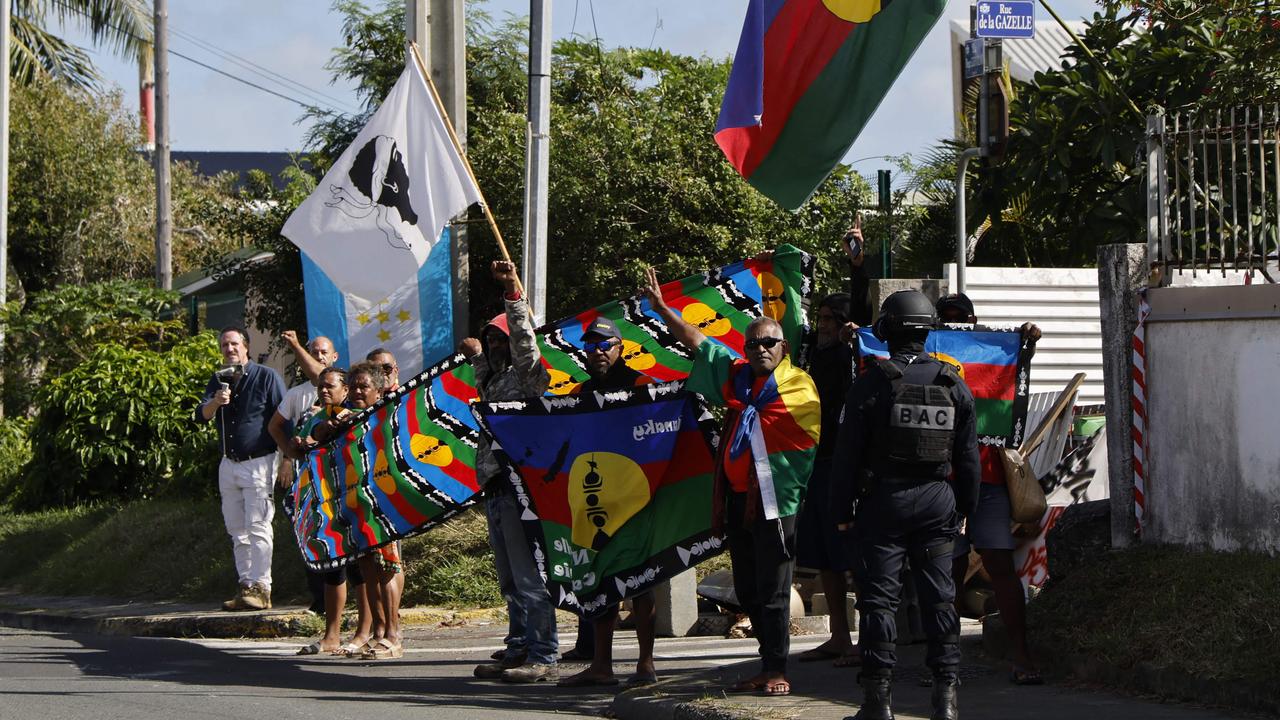
READING LEVEL: RED
Australians visiting the South Pacific island of New Caledonia have started returning home after riots sent the French overseas territory into chaos.
Airports and schools were closed and a curfew was put in place in the capital Noumea after protesters torched cars and businesses. Sadly, six people have died in the since the conflict turned violent.
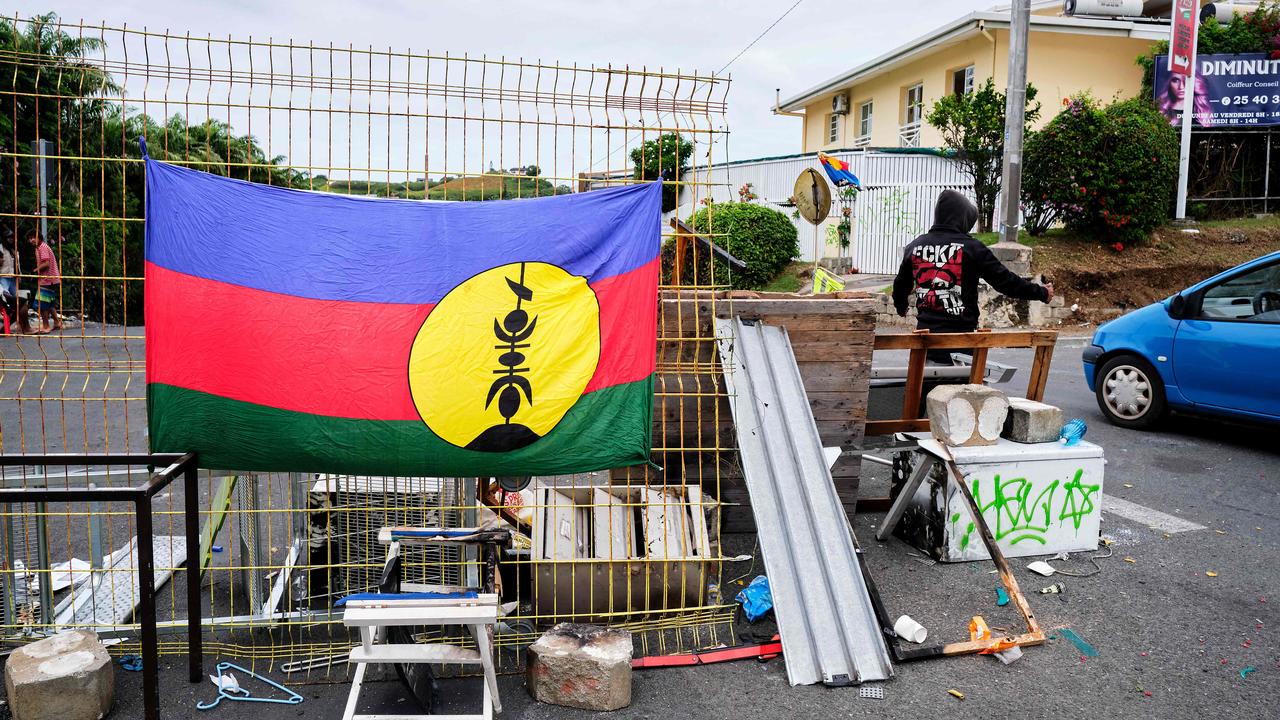
WHAT CAUSED THE RIOTS?
New Caledonians started the riots in protest of a change to the island’s voting laws, but to understand why, we’ll need to look back over the island’s history and how it became a French overseas territory.
HISTORY OF NEW CALEDONIA
The island of New Caledonia is about 3,283km from Australia’s east coast in the warm waters of the South Pacific.
About 270,000 people call New Caledonia home. The Indigenous Kanak people make up about 41 per cent of the population while 24 per cent are European, mainly French.
The idyllic island rich in nickel was annexed, or taken over, by France in 1853 and used as a penal colony until the 1900s.
It officially became a French overseas territory in 1946. Tensions began to rise between the Indigenous Kanak people and overseas people that moved to the island in the 1970s in order to mine its nickel.
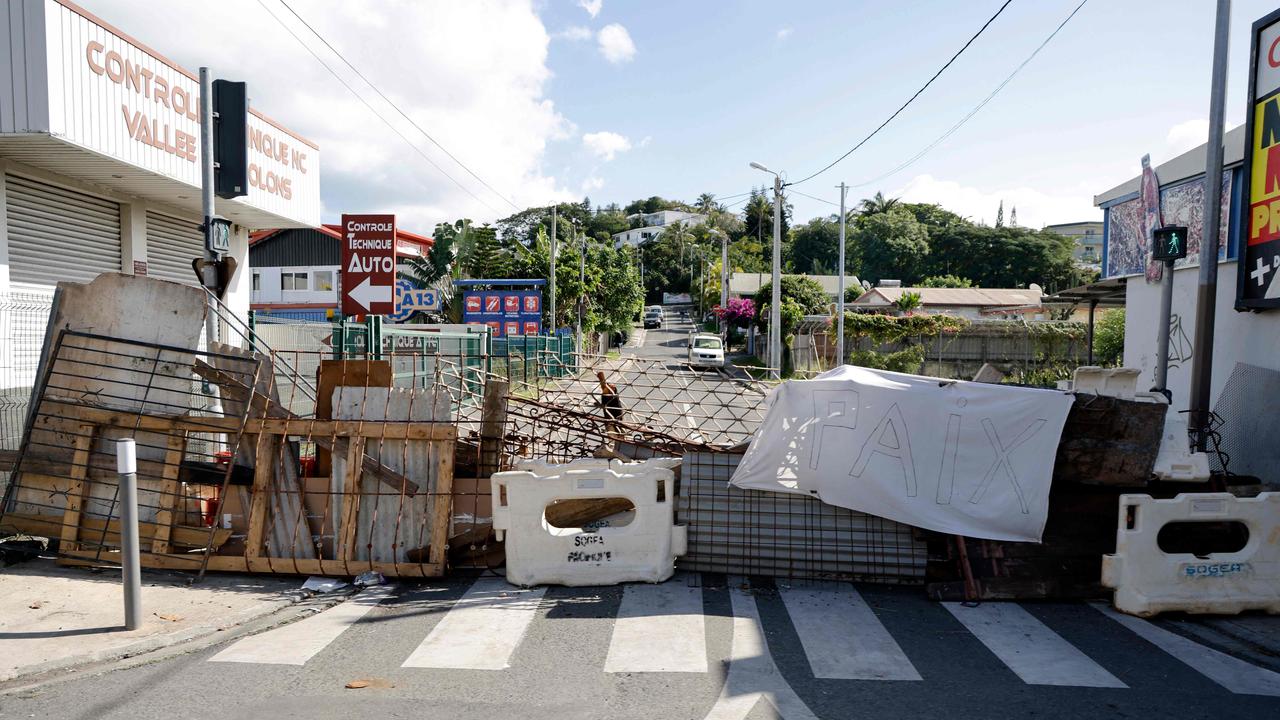
A PATH TO INDEPENDENCE
In 1998, the Noumea Accord mapped out a path to independence from France. This included restructuring voting so that only the Kanak people and others who had moved to New Caledonia before 1998 and their children had the right to vote in elections.
The accord also included three referendums, or public votes, on whether the island should be independent from France.
Each referendum ended in a final vote against independence and the island remained a French overseas territory.

WHY HAS VIOLENCE ERUPTED?
The Noumea Accord had restricted voting to just the Kanak people and those who had moved to the island before 1998 and their children. The measure had been put in place to allow the Kanaks to have a greater voice because they had become a minority after French colonisation.
However, politicians in France have recently come to view the law as being undemocratic in that it excludes too many people. In response, they have approved a constitutional amendment to allow people who have lived in New Caledonia for the past 10 years to vote.
Some local leaders fear the amendment will dilute the vote of the Kanak people, which could weaken their voice on important issues.
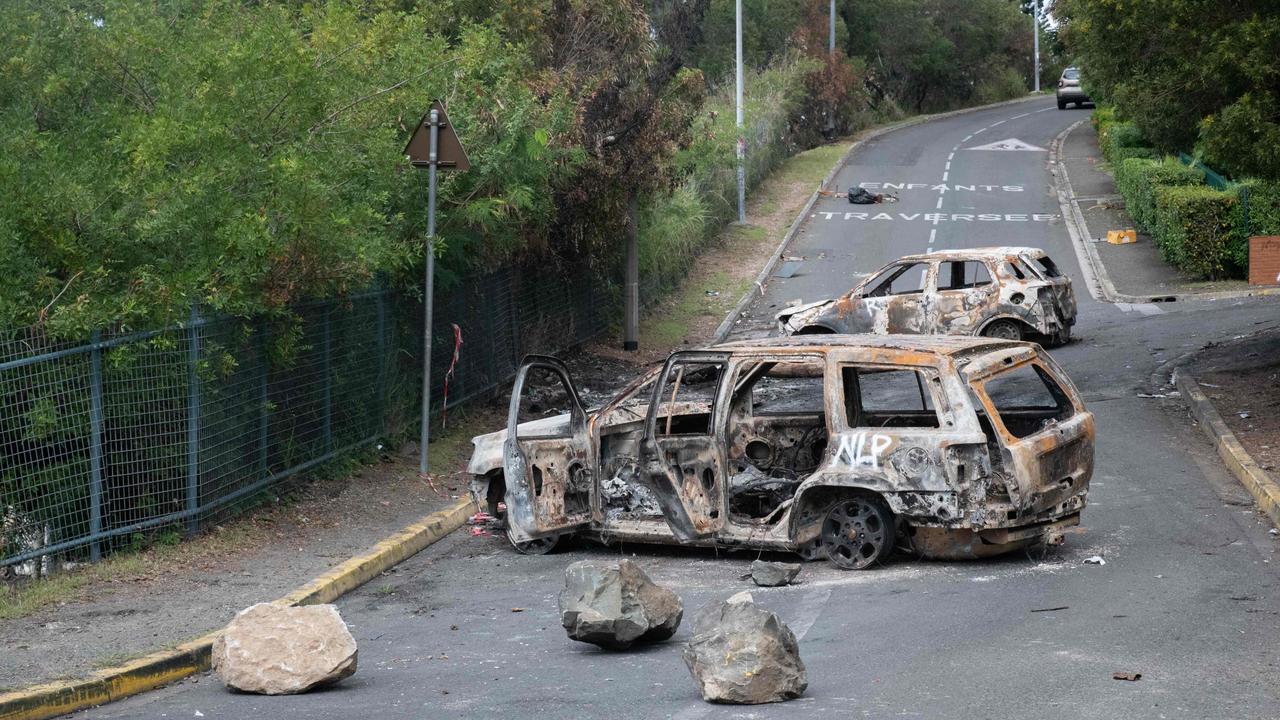
AUSTRALIANS ON THE ISLAND
New Caledonia is just over two hours from Brisbane and under three hours from Sydney. As a nearby tropical paradise with a French flavour, it has long been a top tourism destination for Australian families.
But recent tensions mean Aussie tourists were told to stay indoors and wait to hear from the Australian Government about repatriation, or rescue, flights home.
Three repatriation flights operated by the Royal Australian Airforce have since landed in Brisbane, with the first flight carrying about 70 Australians. Many more remain on the troubled island, however – about 3000 people have become trapped as a result of the unrest and 300 Australians have registered with the Australian Government for a rescue flight home.
An email sent by the Department of Foreign Affairs and Trade to the remaining stranded Australians on Tuesday asked them to be packed and ready to leave.
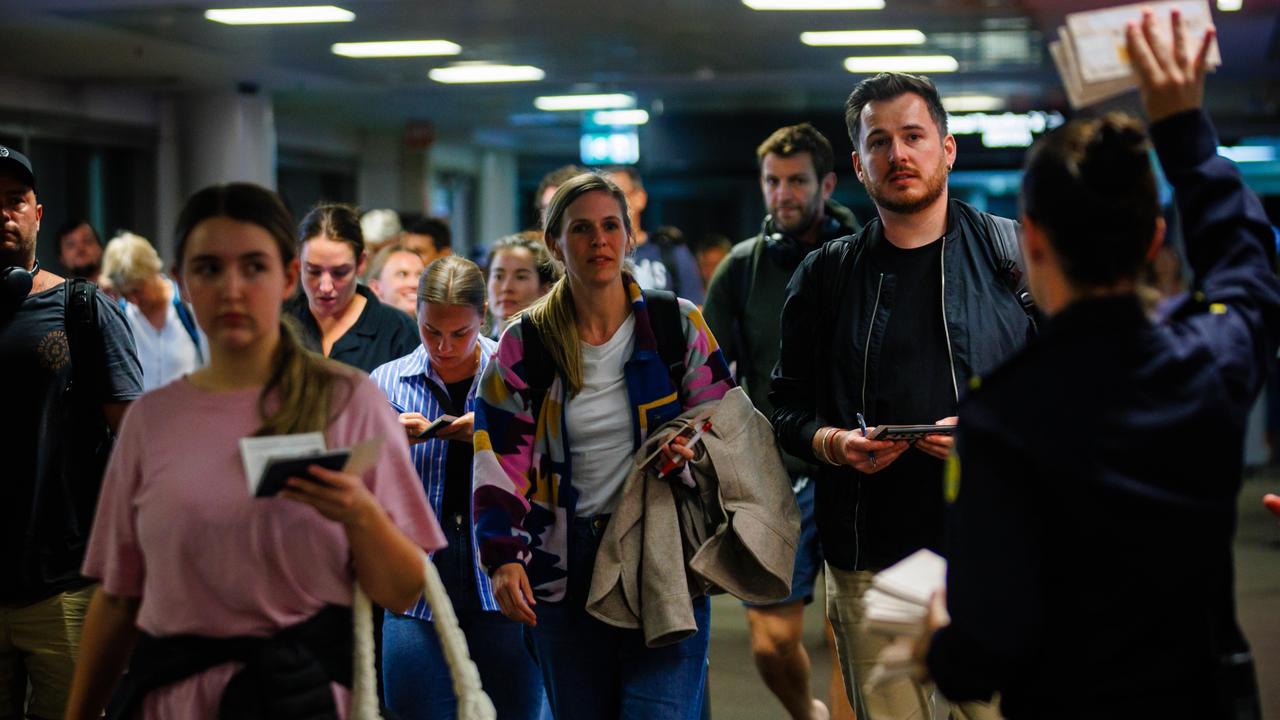
“Notification of seat availability on flights from Noumea may come at short notice,” the email read.
“Please ensure you remain travel-ready with your passport and belongings packed, your phone charged and be ready to move quickly.”
The email from the Consular Team’s Crisis Management Division went on to explain French authorities would be helping anyone stranded outside the capital city of Noumea “in coming days”.
“We are seeking further guidance on this,” the email read.
“Please do not check out of your hotel until you receive confirmation you are booked on a flight and safe passage to Noumea is confirmed.”
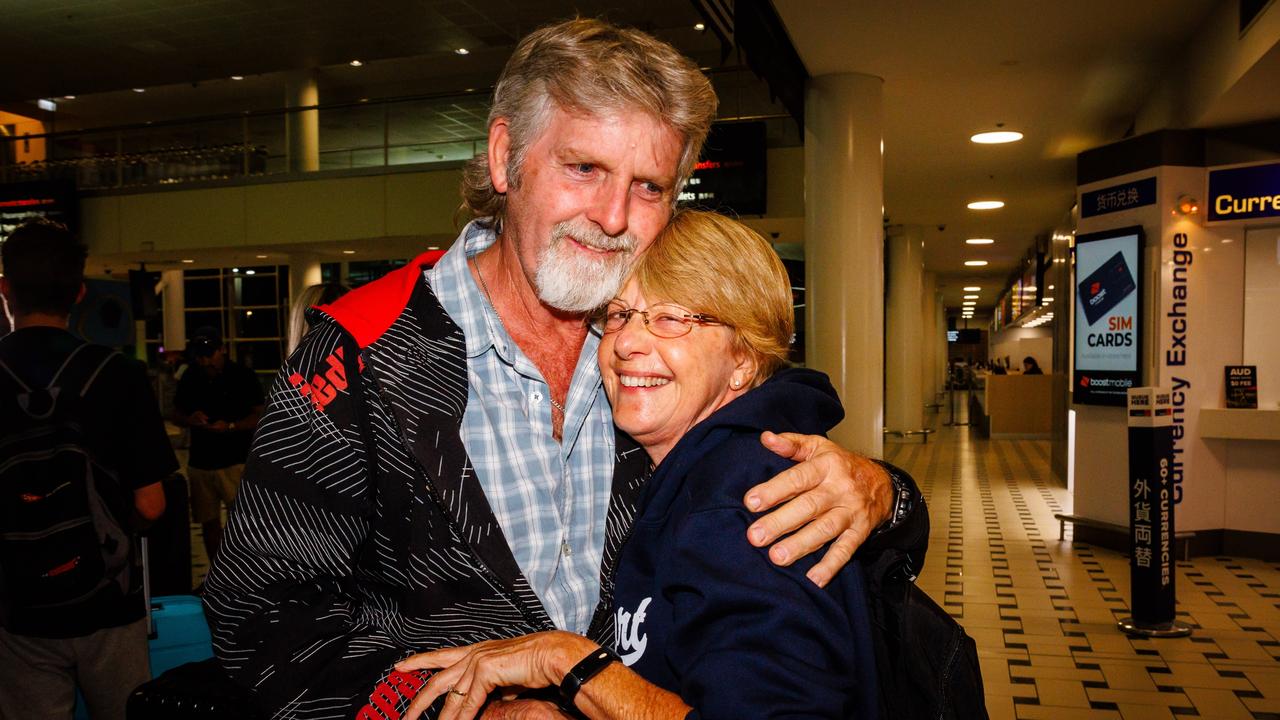
Many Australians stranded in New Caledonia have been forced to ration food as they wait for a rescue flight home. Shops have been stripped almost bare in the capital of Noumea after a strict curfew was put in place to stop the rioting.
The news comes as French president Emmanuel Macron touches down in New Caledonia in an attempt to calm the situation.
New Caledonia became a French overseas territory in the early 20th Century after it was taken over by France in the late 1800s and used as a penal colony.
The idyllic island has been a favourite among Australian tourists for decades because of its proximity and its many resorts and restaurants.
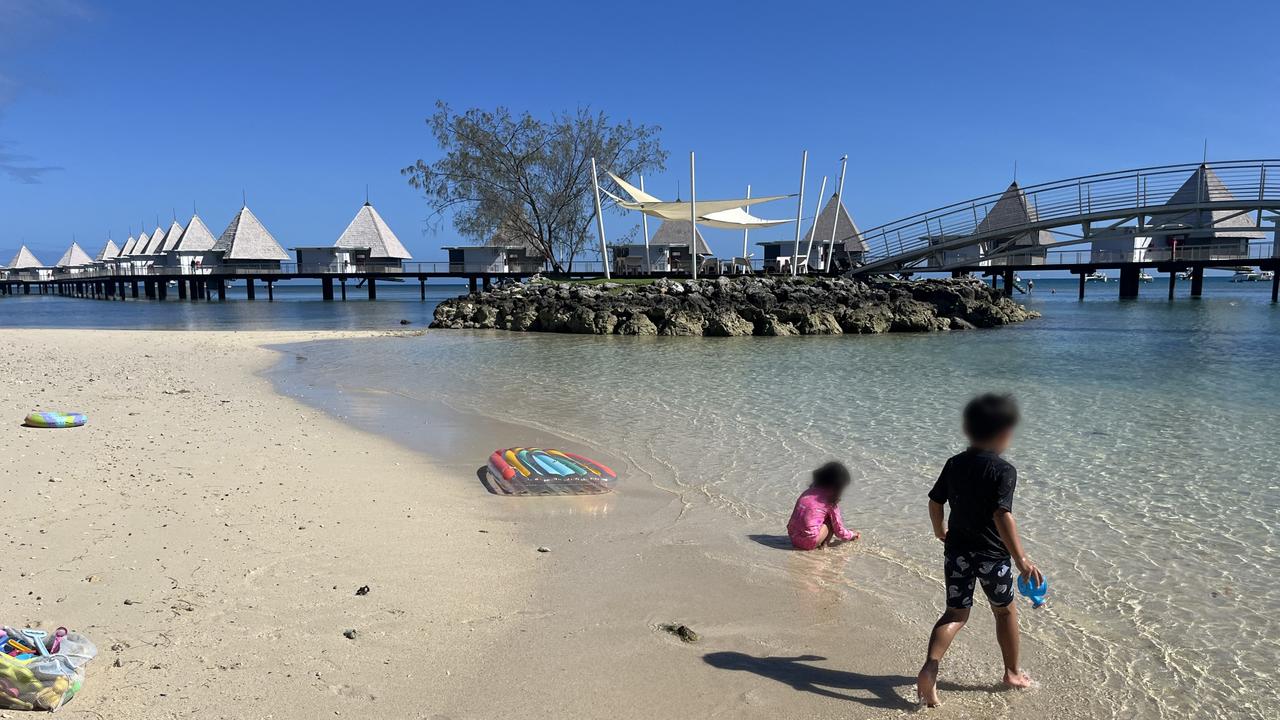
POLL
GLOSSARY
- curfew: when people must stay indoors between specified hours
- repatriation: the return of someone to their own country
- unrest: a state of disorder
- penal colony: when prisoners are sent to another country
- annexed: taken over and ruled by another country
EXTRA READING
Tween girl could rule North Korea
Putin wins presidential election
What is the Israel and Palestine conflict?
QUICK QUIZ
1. Where is New Caledonia?
2. Why is it a popular tourist destination for Australians?
3. What is the name of the Indigenous population of New Caledonia?
4. Why are Australians being flown home from New Caledonia?
5. What is the name of the French president?
LISTEN TO THIS STORY
CLASSROOM ACTIVITIES
1. Write a letter
‘Violence is never the answer.’ Write a letter to the Editor of Kids News explaining your ideas about this topic. Use examples to make your letter as convincing as possible.
Time: allow at least 20 minutes to complete this activity
Curriculum Links: English, Civics and Citizenship, Personal and Social Capability
2. Extension
Imagine that you are a reporter for Kids News. Your job is to interview French President Macron, and then the leader of the local New Caledonians. Write three questions that you would ask them about the riots, what the solution could be, and anything else that you think is important (they can be the same questions or different questions). Use information in the story and use your research skills to write the answers that you think they might give.
Time: allow at least 30 minutes to complete this activity
Curriculum Links: English, History, Civics and Citizenship
VCOP ACTIVITY
Read this!
A headline on an article – or a title on your text – should capture the attention of the audience, telling them to read this now. So choosing the perfect words for a headline or title is very important.
Create three new headlines for the events that took place in this article. Remember, what you write and how you write it will set the pace for the whole text, so make sure it matches.
Read out your headlines to a partner and discuss what the article will be about based on the headline you created. Discuss the tone and mood you set in just your few, short words. Does it do the article justice? Will it capture the audience’s attention the way you hoped? Would you want to read more?
Consider how a headline or title is similar to using short, sharp sentences throughout your text. They can be just as important as complex ones. Go through the last text you wrote and highlight any short, sharp sentences that capture the audience.

